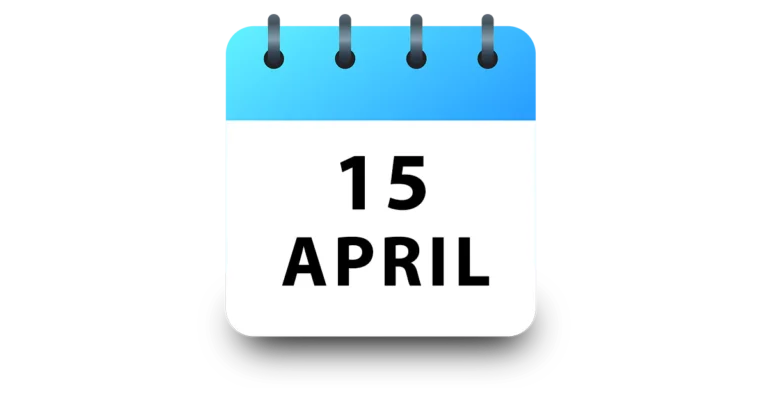18 October 2023 : Daily Current Affair
Daily Current Affairs
18-October-2023
1. Cannot legalise same-sex marriage, says SC Bench.
Topic: GS2 – Indian polity
Context:
- A Constitution Bench of the Supreme Court ruled that only the legislature has the authority to recognize or regulate same-sex marriages, stating there’s no inherent right to marry.
- The Bench was unable to reach a consensus on granting legally recognized “civil union” status to same-sex couples, despite unanimous acknowledgment of the need to end discrimination against them.
- Chief Justice D.Y. Chandrachud, in the minority opinion, asserted that queer individuals have a fundamental right to form relationships, and the State should legally recognize and provide benefits to such unions.
- Justices S.R. Bhat and Hima Kohli, in their majority opinion, stated that legal recognition of unions, similar to marriage or civil union, must come through enacted legislation.
What was the Supreme Court’s view:
- Supreme Court ruled that only the legislature has the authority to recognize or regulate same-sex marriages.
- The Supreme Court has said that it cannot legalize same-sex marriage or civil unions on its own.
- It is up to the Indian Parliament to pass a law to do that. However, the Court has also said that the government cannot discriminate against same-sex couples. They must be treated equally under the law.
Question: Discuss the Supreme Court’s judgment on same-sex marriage in India. Critically examine the implications of the judgment for the LGBTQ+ community and for the future of same-sex marriage in India.
2. Speaker: will work to determine what is unconstitutional
Topic: GS2 – Indian polity
Context:
- Maharashtra Assembly Speaker Rahul Narwekar is determining which developments are deemed “unconstitutional” in relation to disqualification petitions against rebel Shiv Sena MLAs, including Chief Minister Eknath Shinde.
- The Speaker’s stance will be presented before the Supreme Court for clarification on the path forward.
Speaker’s role in anti-defection law:
- The Speaker plays a crucial role in the Anti-Defection Law in India.
- The Speaker decides on disqualification petitions against members of the legislative bodies who are accused of defection.
- The Speaker’s decision can lead to the disqualification of a member, which can impact the majority in the legislature.
- The law gives the Speaker the power to make the final decision, which has raised concerns about impartiality and political influence.
- The delay in deciding such cases has been a subject of criticism and legal challenges, prompting the Supreme Court’s intervention.
3. Paucity of MGNREGS funds hits Karnataka
Topic: GS2 – Government initiatives
Context:
- Karnataka Chief Secretary Vandita Sharma highlighted the concerning situation of the Mahatma Gandhi National Rural Employment Guarantee Scheme (MGNREGS) in a letter to Union Rural Development Secretary Shailesh Kumar Singh.
- The state is grappling with severe drought conditions, with 161 out of 195 taluks declared drought-hit.
- Due to wage payment delays, rural laborers dependent on MGNREGS jobs for their livelihood are struggling to meet daily needs, leading to migration from rural to urban areas in search of work.
Significance of MGNREGS for rural population:
- Livelihood Support: MGNREGS provides rural households with a source of income during lean agricultural seasons.
- Poverty Alleviation: It helps reduce poverty by offering guaranteed employment and wages to vulnerable populations.
- Social Inclusion: The scheme promotes equal job opportunities for men and women and encourages participation from marginalized groups.
- Rural Development: MGNREGS contributes to rural infrastructure development, improving living conditions in villages.
- Safety Net: It acts as a financial safety net, ensuring that rural households have access to work and income year-round.
4. Kerala mulls planting bamboo along Munnar’s Gap Road to avert landslips
Topic: GS3 – disaster management
Context:
- The Kerala Forest Department intends to plant bamboo and bamboo creeper along the Gap Road section of the Kochi-Dhanushkodi National Highway in Munnar.
Other measures to avert landslides:
- Terracing: Creating terraces or retaining walls on slopes to prevent soil erosion and landslides.
- Reforestation: Planting native trees and shrubs to stabilize soil and improve root cohesion.
- Soil Erosion Control: Installing erosion control mats, geotextiles, or silt fences to retain soil.
- Drainage Systems: Building proper drainage channels to redirect water away from slopes.
- Slope Stabilization Structures: Constructing rock buttresses, gabions, or reinforced soil walls.
- Early Warning Systems: Implementing monitoring systems to detect potential landslides in advance.
Importance of bamboo in landslide aversion:
- Deep Root System: Bamboo’s extensive root system can anchor soil and prevent erosion and landslides.
- Soil Stability: Bamboo’s rhizomatous root structure enhances soil stability on slopes.
- Erosion Control: Bamboo plants help control soil erosion by binding the soil together.
- Quick Growth: Bamboo grows rapidly, providing quick coverage to vulnerable areas.
- Low Maintenance: Bamboo requires minimal maintenance, making it a cost-effective solution.
5. How synergistic barriers are affecting progress on SDGs
Topic: GS3 – sustainable development goals.
Context:
- World leaders reaffirmed commitment to Sustainable Development Goals (SDGs) at the SDG Summit in New York.
What does the article say about progress on SDGs:
- Little progress has been made towards the 17 SDGs, with only 15% of the 169 targets on track to be met.
- An SDG stimulus of $500 billion annually was pledged, but a significant investment gap remains, estimated at over $4 trillion for developing countries.
- Synergy among SDGs is crucial for effective progress, but there is a lack of coordinated action and understanding of institutional barriers.
- The Indian context highlights the need to address such barriers and align targets with desired outcomes.
- Focusing on clean energy options can yield synergistic impacts, particularly in reducing air pollution and promoting human health.
6. A case for marriage equality: the legal arguments for same-sex marriage
Topic: GS3 – LGBTQ community
Context:
- The Centre filed an affidavit opposing same-sex marriage in the Supreme Court, emphasizing the traditional view of marriage in India.
- Calls have been made to have the debate on same-sex marriage take place in Parliament rather than in the courts.
Views expressed by people against same-sex marriage:
- Retired judges and legal scholars have expressed concerns about the impact of same-sex marriage on traditional family structures and societal norms.
Advocates of LGBTQ community:
- Advocates for LGBTQ+ rights argue that they are seeking equal citizenship and rights, not special privileges.
- Interpretation of statutes can be a flexible process, and creative interpretations in favor of fundamental rights are possible.
- Indian marriage laws have a mixture of common law and religious origins, and marriage is primarily a status conferred by law today.
- Some arguments suggest that marriage laws necessitate procreation, but this standard is not uniformly applied.
- New forms of marriage and family structures, including non-heterosexual arrangements, have existed in the subcontinent historically.
- While marriage may not lead to queer liberation, it fulfills legitimate legal needs for issues like property inheritance, tax filing, and more.
- Queer individuals demand legal recognition and equal rights, regardless of societal acceptance, and seek to broaden traditional notions of family and respectability.
Question: Discuss the legal and social implications of the Centre’s stance against same-sex marriage in India. What are the arguments put forward by the advocates of LGBTQ community in favour of same-sex marriage.
7. Institution of marriage has undergone sea change: SC
Topic: GS1 – Indian society
Context:
- The Supreme Court, under Chief Justice D.Y. Chandrachud, discussed the evolving nature of the institution of marriage.
- Chief Justice Chandrachud emphasized that marriage should not be characterized as static or unchanging.
- He highlighted the diverse perspectives on marriage, with different religions considering it either a sacrament or a contract.
Changes in marriage as an institution in modern life:
- Gender Equality: A move towards gender equality and LGBTQ+ inclusion in marriage.
- Love and Choice: A focus on love and personal choice in selecting a spouse.
- Decline in Arranged Marriages: Reduced prevalence of arranged marriages.
- Changing Family Structures: Acceptance of various family structures and parenting arrangements.
- Delayed Marriages: People are marrying later in life.
- High Divorce Rates: Higher divorce rates and acceptance of divorce.
- Dual-Income Households: Shift towards both spouses working outside the home.
Question: Discuss the transformation of the institution of marriage in contemporary society. Analyze the implications of these changes for individuals and society as a whole.
8. Why Egypt is keeping Gaza’s Rafah border crossing shut
Topic: GS2-IR, Prelims
Context:
- In the ongoing confrontation between Israel and the Palestinian militant organization Hamas, the Rafah crossing between the Gaza Strip and Egypt has taken center stage.
- This crossing is the only point at which aid may enter Gaza from outside of Israel and the only one at which it can leave Gaza without going into Israeli territory.
About Rafah Crossing:
- Location: The southernmost point of the Gaza Strip, which is a small area home to about 2.3 million people, is where the Rafah crossing is located. Israel, Egypt, and the Mediterranean Sea are all geographically separated by it.
- Control: Egypt is responsible for the administration and control of the Rafah crossing.
- Access Restrictions: Due to worries about security in the northeastern Sinai-peninsula, where Egypt has had to deal with an Islamist insurgency, access across Rafah is restricted. After 2013, these security worries reached their peak, and they have since been mostly contained.
- History of Restrictions: Since Hamas took over in Gaza in 2007, Egypt has worked with Israel to impose a siege on the territory, which has severely restricted the flow of people and goods. Even if restrictions at this and other crossings have occasionally been loosened, they nonetheless remain in place. When using the crossing, travelers are subject to long security checks and clearances.
- Past incidents: Following breaches in border defenses caused by Hamas in 2008 that allowed tens of thousands of Palestinians to enter Sinai, Egypt built a stone and cement wall to fortify its border.
- Role in Conflict: In the past, amid confrontations and disturbances, Egypt has served as a mediator between Israel and the various Palestinian factions. In these circumstances, Egypt has sporadically closed the border while allowing help to enter and medical patients to be evacuated. These safeguards have, however, limited widespread population mobility
 .
.
9. Revolutionary Brain Mapping Project
Topic: GS3-Science and Tech
Context:
- An innovative project to map the human brain with unmatched accuracy was started by a global team of experts.
Details:
- This $375 million brain atlas research, which started in 2017, has revealed over 3,300 different types of brain cells, a major advance over what was previously known.
- These recently found cells’ functions are still mainly unknown.
- The research team obtained brain tissue from a variety of people, including those who were recently deceased and those undergoing brain surgery.
- The cerebral cortex, a region crucial for sophisticated cognitive activities like language use and future planning, is home to many of the newly discovered cell types.
- Notably, a sizable fraction of the brain’s cellular diversity was discovered outside of the cerebral cortex, especially in deeper brain areas like the brain stem, which connects to the spinal cord.
Beyond Neurons
- Researchers discovered several support cells in addition to many new types of neurons that process information using electrical signals and chemicals.
- The majority of the brain’s cells are support cells, which comprise astrocytes, which are in charge of caring for neurons, and microglia, which act as immune cells to defend the brain from intruders and enhance neuron signaling.
- During the research, a large number of novel forms of these support cells were discovered.
10. Google’s Expanding Manufacturing Capabilities in India
Topic: GS3-Economy
Context:
- Sundar Pichai, CEO of Alphabet, and Prime Minister Narendra Modi spoke about Google’s efforts to create an ecosystem for the production of electronics in India.
The Significance of Local Electronics Manufacturing for India
- This achievement serves as an example of India’s efforts to position itself as a “trusted partner” in international supply chains.
- It is happening at a time when businesses, especially those from the United States, are attempting to diversify their manufacturing away from China, which has long been a traditional center for manufacturing.
- India now gets the majority of its laptops and computers from imports from China. In order to change this, the nation supports domestic manufacturing.
- In India, imports of electronic products including laptops/computers have increased recently. Comparing the same time this year to previous, the imports of electronic goods climbed from $4.73 billion to $6.96 billion, accounting for 4-7% of all imports.
- Personal computers, including laptops, make for the largest percentage of imports into India, with China representing around 70–80% of those imports.
- India created a production-linked incentive (PLI) scheme to support domestic manufacturing.
11. India-Middle East-Europe Economic Corridor Aims for Transformation
Topic: GS2-IR
Context:
- Prime Minister Narendra Modi, addressing the Global marine India Summit in Mumbai, stressed the potential of the India-Middle East-Europe Economic Corridor in changing the global marine industry.
Key aspects of the corridor:
- The project includes the construction of next-generation mega ports.
- It will focus on international container transshipment ports, island development, and inland waterways.
- The expansion of multimodal hubs is part of this initiative.
- The corridor aims to reduce business costs, enhance logistical efficiency, minimize environmental impact, and generate a substantial number of jobs.
1) PM spells out ISRO goals: Space station by 2035, Indian on Moon by 2040
Topic: GS3- Science and Tech
Context:
- Prime Minister Narendra Modi unveiled new goals for the Indian Space Research Organization (ISRO) two months after India’s successful moon landing and Sun study mission.
List of Goals include:
- Setting Up an Indian Space Station by 2035
- First Indian on the Moon by 2040
- Venus Orbiter Mission and a Mars Lander Mission.
- Gaganyaan Mission which is scheduled for launch in 2025
- Three Uncrewed Missions Planned: There are about 20 significant tests planned, including three missions without crew for the Human-Rated Launch Vehicle.
Way Forward:
- India’s desire to keep making strides in space exploration and research is reflected in these announcements.
For Enquiry

18 October 2023 : Daily Current Affair

18 October 2023 : The Hindu Editorial Notes PDF

17 Oct 2023 : Daily Quiz

17 Oct 2023 : Daily Answer Writing

17 Oct 2023 : Indian Express

17 Oct 2023 : PIB

17 October 2023 : Daily Current Affair

17 October 2023 : The Hindu Editorial Notes PDF

16 Oct 2023 : Daily Quiz

16 Oct 2023 : Daily Answer Writing
Daily Current Affairs 18 October 2023 : Daily Current Affair Daily Current Affairs
17-October-2023
1. SC refers electoral bonds case to 5-judge Constitution Bench.
Topic:…
October 2023 The Hindu 18 October 2023 : The Hindu Editorial Notes PDF The Hindu Editorial
18-October-2023
1. Demolishing the frame from outside the Constitution
Topic: GS2…
Daily Quiz 17 Oct 2023 : Daily Quiz 17 Oct 2023 : Daily Quiz…
mains answer writing 17 Oct 2023 : Daily Answer Writing Mains Answer Writing
17-october-2023
1. Corruption corrodes the fabric of governance, eroding the public’s…
Indian Express 17 Oct 2023 : Indian Express Indian Express
17-October-2023
1) A Conflicted Modernist
Context:
Sir Syed’s 125th birth anniversary…
October 2023 PIB 17 Oct 2023 : PIB PRESS INFORMATION BUREAU
17-Oct -2023
1. Inland waterways transport is proving to be a game-changer:…
Daily Current Affairs 17 October 2023 : Daily Current Affair Daily Current Affairs
17-October-2023
1. SC refers electoral bonds case to 5-judge Constitution Bench.
Topic:…
October 2023 The Hindu 17 October 2023 : The Hindu Editorial Notes PDF The Hindu Editorial
17-October-2023
1. The Indian Himalayan Region needs its own EIA
Topic: GS3 –…
Daily Quiz 16 Oct 2023 : Daily Quiz 16 Oct 2023 : Daily Quiz…
mains answer writing 16 Oct 2023 : Daily Answer Writing Mains Answer Writing
16-october-2023
1. ‘Satisfactory and timely redressal of grievances is the cornerstone…





